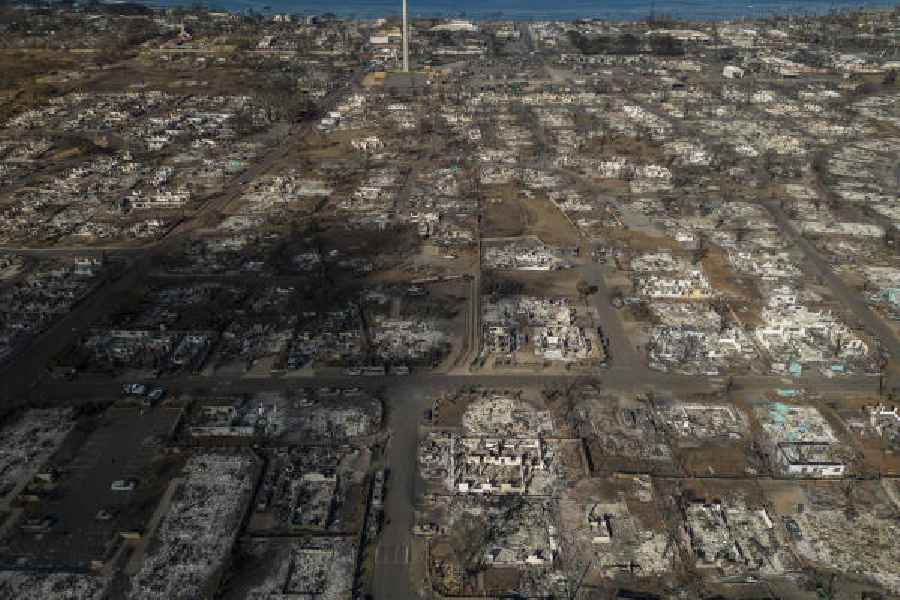When wildfires swept across Maui, Hawaii, China’s increasingly resourceful information warriors pounced. The disaster was not natural, they said in a flurry of posts that spread across the Internet but was the result of a secret “weather weapon” being tested by the US. The posts carried photos that appeared to have been generated by AI programs.
For China — which largely stood on the sidelines of the 2016 and 2020 US presidential elections while Russia ran hacking operations and disinformation campaigns — the effort to cast the wildfires as a deliberate act by US intelligence agencies and the military was a rapid change of tactics.
Until now, China’s influence campaigns have been focused on amplifying propaganda defending its policies on Taiwan and other subjects. The most recent effort, revealed by researchers from Microsoft and a range of other organisations, suggests that Beijing is making more direct attempts to sow discord in the US.
The move also comes as the Biden administration and Congress are grappling with how to push back on China without tipping the two countries into open conflict, and with how to reduce the risk that AI is used to magnify disinformation.
The impact of the Chinese campaign — identified by researchers from Microsoft, Recorded Future, the RAND Corp., NewsGuard and the University of Maryland, US — is difficult to measure, although early indications suggest that few social media users engaged with the most outlandish of the conspiracy theories.
Brad Smith of Microsoft, whose researchers analysed the covert campaign, sharply criticised China for exploiting a natural disaster for political gain. “I just don’t think that’s worthy of any country, much less any country that aspires to be a great country,” Smith said.
China was not the only country to make political use of the Maui fires. Russia did as well, spreading posts that emphasised how much money the US was spending on the war in Ukraine and that suggested the cash would be better spent at home for disaster relief.
The researchers suggested that China was building a network of accounts that could be put to use in future information operations, including the next US presidential election. That is the pattern that Russia set in the year or so leading up to the 2016 election.
If China does engage in influence operations for the election next year, it is likely to try to diminish President Joe Biden and raise the profile of former President Donald Trump. While that may seem counterintuitive to Americans who remember Trump’s effort to blame Beijing for what he called the “China virus", intelligence officials have concluded that Chinese leaders prefer Trump. He has called for pulling Americans out of Japan, South Korea and other parts of Asia, while Biden has cut off China’s access to the most advanced chips and the equipment made to produce them.
Caroline Amy Orr Bueno of the University of Maryland’s Applied Research Lab for Intelligence and Security, US, reported that a coordinated Russian campaign began on Twitter on August 9, a day after the fires started. It spread the phrase, “Hawaii, not Ukraine,” from one obscure account with few followers through a series of conservative or Right-wing accounts such as Breitbart and ultimately Russian state media, reaching thousands of users with a message intended to undercut US military assistance to Ukraine.
Recorded Future first reported that the Chinese government mounted a covert campaign to blame a “weather weapon” for the fires, identifying numerous posts in mid-August falsely claiming that MI6, the British foreign intelligence service, had revealed “the amazing truth behind the wildfire". Posts with the exact language appeared on social media sites across the Internet, including Pinterest, Tumblr, Medium and Pixiv, a Japanese site used by artists.
NYTNS











